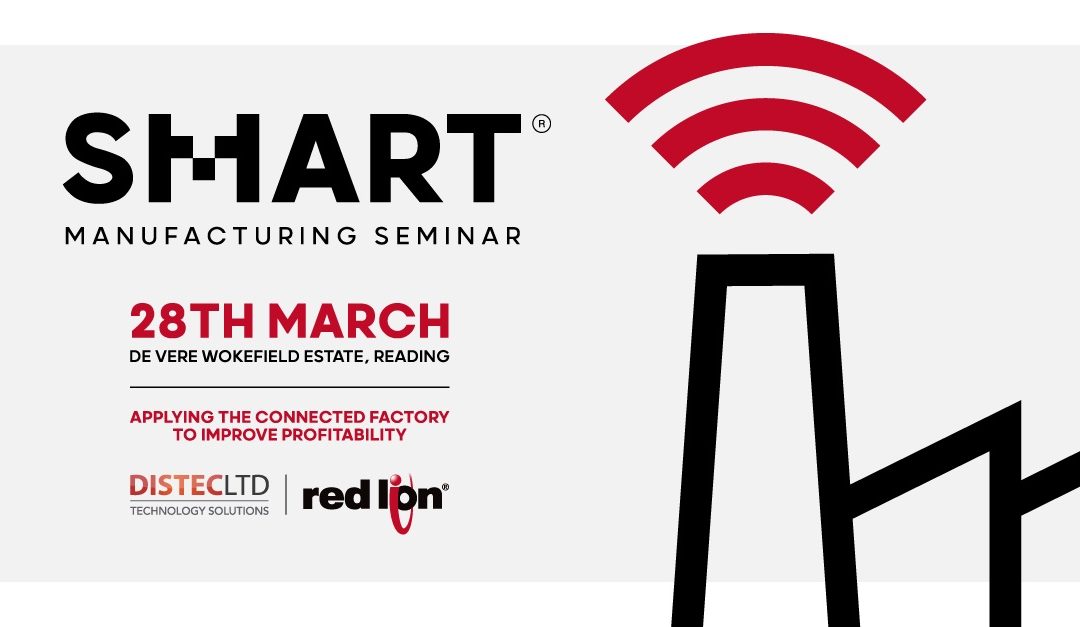The Takeaways from our Smart Manufacturing Seminar
What is a smart factory?
Smart factories are extraordinarily diverse and flexible, but the key feature they all share is the use of automation and networking technologies. These technologies capture, transmit, analyse and ultimately harness data from across the factory floor, using it connect, monitor and control almost any assets within the business,
So, a smart factory might have implemented controls to automatically adjust the production line when a particular rate of production is reached. It might have installed sensors to automatically monitor the oil levels or temperature of particular components, and alert engineers as to when proactive maintenance needs to take place. It might be capturing information on production efficiency over time, in order to analyse trends in factory performance and ultimately to innovative and optimise.
What caught attendees’ imagination?
Engaging speakers from both Distec and Red Lion Controls took to the floor to cover some of the possibilities of smart factories and explore key challenges for our attendees.
Which challenges were they most interested in exploring? There were three key elements that came up over and over again. First, our attendees were under significant time pressures. They needed managing their factors to be time-efficient, and yet this is becoming increasingly difficult as factories become more and more complex. Indeed, complexity was the second key challenge raised. Third, attendees were struggling to merge and integrate legacy and modern control systems within their factories.
Smart factory technology can play a role in alleviating all three challenges.
We discussed how smart factories can optimise performance and increase operational efficiency, thereby speeding up production and enabling products to get to market faster. We also explored how smart factories can deliver greater business agility whilst reducing capital expense, in part because physical assets are maintained for longer through predictive maintenance.
Next, we looked at truly end-to-end connectedness. Whether on the plant floor or in the front office, smart factory technology can enable employees to act on real-time data from virtually any equipment, anywhere, and make operational decisions that have meaningful business impact. These decisions could range from the simple – relocating a physical asset – to the complex – reworking an entire production line to meet forecasted demand.
We also explored how smart factory technology can optimise capital investment by leveraging existing infrastructure to integrate new intelligent devices, and how you can connect existing equipment to new assets with ease. In other words, smart factory technology can enable the seamless integration of modern and legacy equipment – a key challenge for seminar attendees.
Red Lion Controls is one of our key partners and offers over 300 industrial drivers for the ultimate in interoperability. Their award-winning industrial automation and networking solutions provide critical information and controls to improve productivity, working with numerous devices and diverse protocols to access data.
If you missed our seminar and would like to learn more about smart factories and how Distec and Red Lion can help, get in touch with us today.
Quick Links:
To view our Smart Factory technology, click here >

